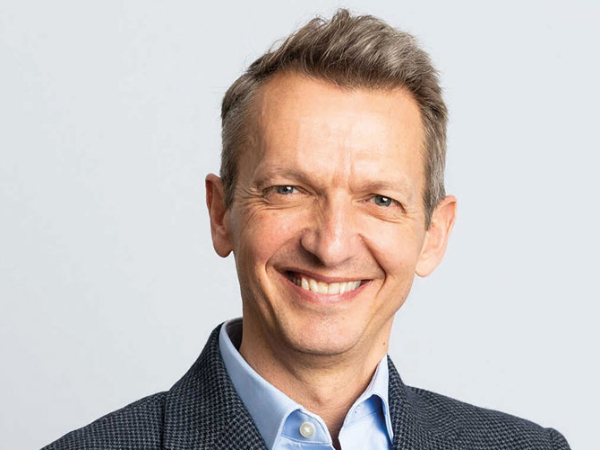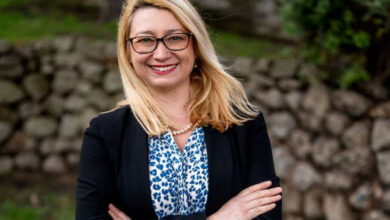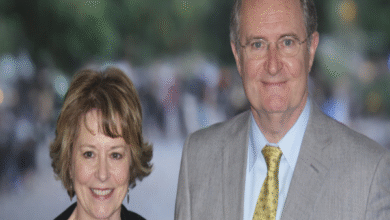Andy Haldane: Visionary Economist Shaping the Future of British Policy and Global Finance
Exploring the life, career, ideas, and influence of one of the UK’s most forward-thinking economic leaders

Andy Haldane is one of the most influential British economists of the modern era. Widely recognized for his visionary thinking on financial stability, public policy, and economic inequality, he has played a key role in shaping both the United Kingdom’s and the world’s understanding of how economies can grow more resilient, fair, and adaptable.
Born in 1967 in Tyne and Wear, England, Andy Haldane rose from humble beginnings to become Chief Economist at the Bank of England, where he served for more than three decades. He is also known for his leadership at the Royal Society of Arts (RSA), his advisory roles in government, and his appointment as Chancellor of the University of Sheffield in 2025.
Haldane’s deep insights, human-centered approach to economics, and plain-spoken communication style have made him one of the most respected voices in global policy circles. His work bridges the gap between complex economic theory and the real-world issues faced by citizens — from inequality and productivity to education and community growth.
Andy Haldane Age and Early Life
As of 2025, Andy Haldane is 58 years old. He was born on August 18, 1967, in Tyne and Wear, a region in the northeast of England.
Haldane grew up in a modest family environment and attended Guiseley School in West Yorkshire. From an early age, he showed curiosity about how societies work and how wealth is distributed. Interestingly, he did not study mathematics at A-level, which is rare for an economist. Instead, his interest in people, fairness, and decision-making led him naturally to economics.
He later earned a Bachelor of Arts in Economics from the University of Sheffield in 1988 and a Master’s degree in Economics from the University of Warwick in 1989. These formative years shaped his approach to economics — practical, data-driven, yet grounded in social purpose.
Andy Haldane Family and Personal Background
While Andy Haldane is known primarily for his professional achievements, he is also a devoted family man who prefers to keep his private life away from public scrutiny. He is married and has children, though he rarely discusses his family in interviews, choosing instead to focus on his economic and civic work.
Haldane often references values such as empathy, trust, and community — principles that many observers believe are rooted in his upbringing. He has spoken about the importance of moral compass and integrity in finance, hinting at how personal experiences shaped his perspective.
Despite his prominence, Haldane maintains a reputation for humility and accessibility — traits that have earned him respect not only among economists but also among educators, charities, and policymakers.
Professional Journey: From Bank of England to National Leadership
Early Career at the Bank of England
Andy Haldane joined the Bank of England in 1989 as an economist and quickly gained a reputation for his sharp intellect and innovative ideas. Over more than 30 years at the institution, he served in multiple key roles, including:
-
Head of Market Infrastructure Division
-
Executive Director for Financial Stability
-
Member of the Monetary Policy Committee (MPC)
-
Chief Economist of the Bank of England
In these positions, Haldane was responsible for analyzing the UK’s monetary trends, managing systemic risk, and ensuring that financial systems remained robust in times of stress.
One of his most famous speeches, “The Dog and the Frisbee”, delivered in 2012 at the Jackson Hole Symposium, argued that complex systems — like global finance — often function better when governed by simple, adaptive rules rather than overly intricate regulations. This idea positioned Haldane as a leading thinker on economic complexity and behavioral finance.
Championing Financial Stability and Fair Growth
During his tenure at the Bank of England, Haldane became a leading advocate for financial reform after the 2008 global financial crisis. He pushed for more transparency and accountability in the banking sector, emphasizing that economic systems must serve society — not the other way around.
He was also instrumental in developing new frameworks for macroprudential policy, which aim to identify and mitigate risks to the entire financial system rather than just individual institutions. His innovative thinking helped modernize how central banks assess and respond to financial instability.
Andy Haldane and the Royal Society of Arts (RSA)
After leaving the Bank of England in 2021, Andy Haldane became Chief Executive of the Royal Society of Arts (RSA) — an organization dedicated to social progress, creativity, and innovation. Under his leadership, the RSA expanded its focus on inclusive growth, future-of-work research, and public service reform.
Although his tenure at the RSA ended in early 2025, Haldane left a significant mark by emphasizing the link between economics and human wellbeing. He championed projects that explored how to “level up” communities across the UK, connecting economic opportunity with education, housing, and social infrastructure.
Andy Haldane Wikipedia Overview
According to publicly available biographical data (such as what is summarized on Wikipedia), Andy Haldane’s career spans across public service, academia, and policy influence. His Wikipedia profile highlights his roles as:
Chief Economist, Bank of England (2014–2021)
Chief Executive, Royal Society of Arts (2021–2025)
Chair, Levelling Up Advisory Council (UK Government)
Chair, Industrial Board, Advanced Manufacturing Research Centre (AMRC)
Chancellor, University of Sheffield (from 2025)
Founder, Pro Bono Economics — a charity that connects economists with non-profit organizations
His Wikipedia biography also notes his academic affiliations as a Visiting Professor or Honorary Fellow at several UK universities, including King’s College London, Exeter, Nottingham, and Oxford.
Andy Haldane Net Worth and Recognition
Estimating the net worth of a public economist is challenging, as Haldane’s wealth primarily derives from his long career in public service rather than corporate finance. However, as of 2025, analysts and media outlets estimate Andy Haldane’s net worth to be between £3 million and £5 million, reflecting his senior roles at the Bank of England, the RSA, and his various advisory and academic positions.
More importantly, his reputation is built not on financial gain but on intellectual and social influence. Haldane has received numerous honors and recognitions, including:
Time Magazine’s 100 Most Influential People (2014)
Fellow of the Royal Society (FRS)
Fellow of the Academy of Social Sciences
Commander of the Order of the British Empire (CBE)
These accolades underscore his contribution to reshaping how modern societies think about economics, fairness, and resilience.
Academic and Advisory Roles
Beyond his government and institutional work, Haldane maintains a strong presence in academia. He is a Visiting Professor at King’s College London and an Honorary Professor at several universities, including Manchester, Nottingham, and Exeter.
He also serves as a trustee and co-founder of Pro Bono Economics, a charity that matches professional economists with charitable organizations seeking to measure social impact. This initiative reflects Haldane’s belief that economics can and should be used for public good, not just market efficiency.
Haldane also chairs National Numeracy’s Leadership Council, promoting mathematical literacy among the UK population — a mission inspired by his own educational journey and the role that numbers play in empowering decision-making.
Andy Haldane’s Economic Philosophy
What sets Andy Haldane apart is his humanistic approach to economics. Rather than treating economics as a purely technical or mathematical discipline, he frames it as a social science that should improve people’s lives.
His economic philosophy rests on three core ideas:
Simplicity in Policy: Complex systems — like financial markets — are best stabilized by simple, transparent rules that ordinary people can understand.
Social Purpose: Economic institutions must serve citizens and build trust, not simply manage inflation or growth statistics.
Inclusive Growth: Prosperity should be shared across regions and social groups, requiring investment in education, infrastructure, and opportunity.
Through these principles, Haldane has become a key figure in the UK’s ongoing debate about inequality, productivity, and regional imbalance — issues central to the government’s “Levelling Up” agenda, which he helped shape.
Major Contributions and Publications
Throughout his career, Haldane has authored numerous speeches, articles, and research papers that influence policymakers and academics alike. Some of his most notable contributions include:
“The Dog and the Frisbee” (2012): Argues for simplicity in financial regulation.
“The Great Divide” (2014): Discusses inequality and social fragmentation.
“Macroeconomics for the Real World” (2016): Explores how behavioral insights can inform monetary policy.
“In Giving, How Much Is Enough?” (2019): Co-authored work examining philanthropy and moral responsibility.
These publications demonstrate his ability to bridge economic theory and everyday reality — making complex ideas understandable to both policymakers and the general public.
Andy Haldane as Chancellor of the University of Sheffield
In March 2025, the University of Sheffield announced that Andy Haldane would become its new Chancellor, a ceremonial position representing the institution at official functions and graduations. This appointment reflects his long-standing connection to his alma mater and his commitment to education and civic leadership.
As Chancellor, Haldane is expected to advocate for inclusive education, social mobility, and innovation — themes that have defined his career. His return to Sheffield symbolizes the full circle of a journey that began in the same university lecture halls decades earlier.
Public Image and Leadership Style
Andy Haldane is widely admired for his humility, empathy, and accessibility — rare traits in a high-ranking economist. He often delivers speeches in plain English, ensuring his ideas reach beyond academic and financial circles.
Colleagues describe him as “a reformer with purpose,” while the media portrays him as one of Britain’s most original economic thinkers. His leadership combines analytical precision with social compassion — a blend that has made him both influential and relatable.
Future Outlook and Legacy
Looking ahead, Andy Haldane’s influence shows no signs of fading. With his roles in academia, public service, and civic institutions, he continues to shape how the UK and other nations think about sustainable economic growth and societal wellbeing.
His work bridges the worlds of policy, economics, and ethics — redefining what it means to be an economist in the 21st century. Whether addressing global financial risks or local community development, Haldane consistently emphasizes one message: economics must serve people, not just markets.
Conclusion
Andy Haldane is more than an economist — he is a reformer, educator, and visionary dedicated to making economic systems more human, inclusive, and just. From his early days at the Bank of England to his leadership at the RSA and the University of Sheffield, his career reflects a rare combination of intellect and integrity.
At 58 years old, with decades of public service and countless contributions to financial thought, Andy Haldane’s legacy continues to inspire future generations of economists, policymakers, and civic leaders. His belief that simplicity, fairness, and empathy can guide even the most complex systems remains a guiding principle for modern economic governance.



